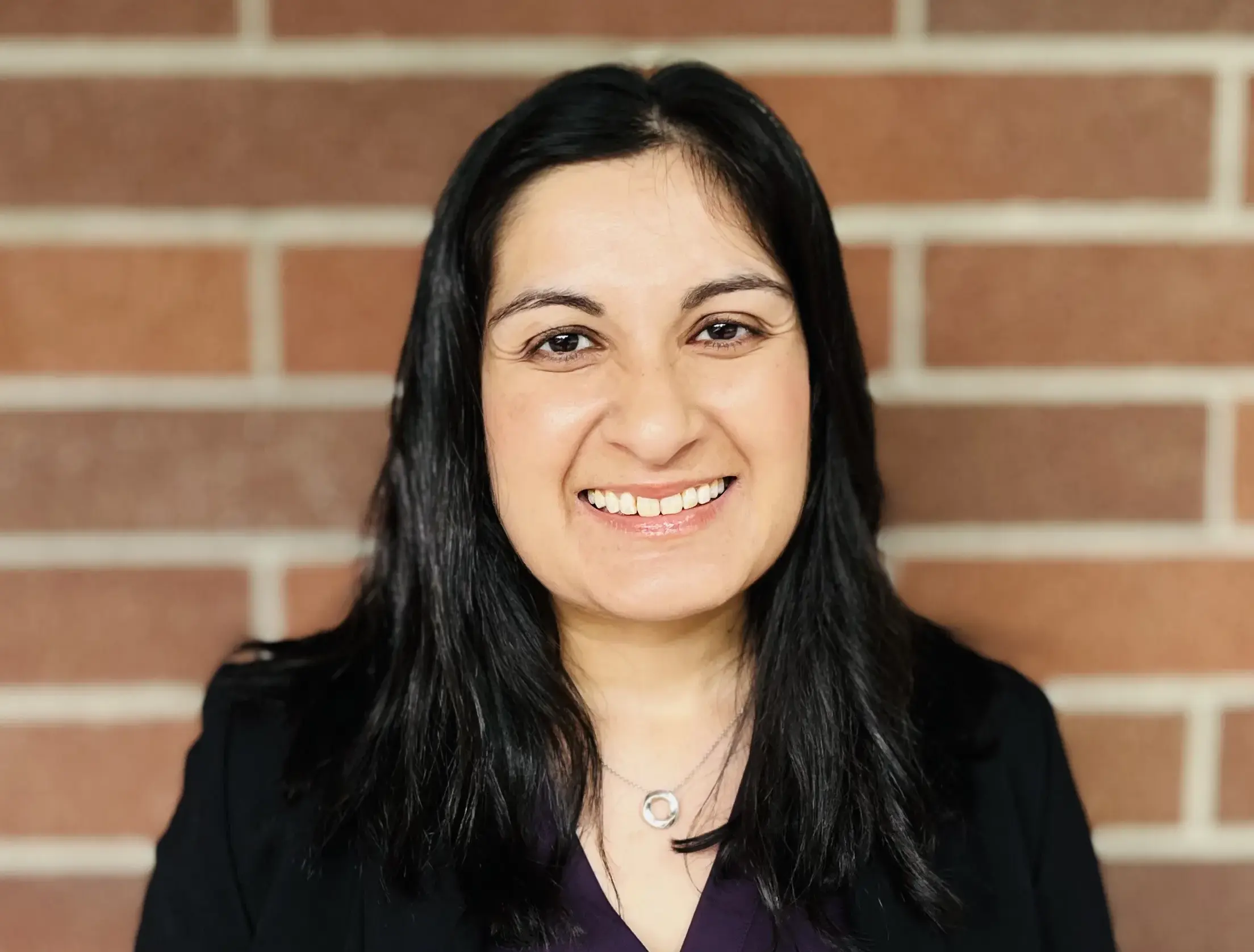
Learning math as an adult might appear daunting, particularly if you have been out of touch with numbers and equations for years.
Many adults juggle responsibilities like work and kids, making it challenging to find time for learning.
Remember, it’s never too late to sharpen your skills or master new mathematical concepts.
Whether you need math for professional development, academic purposes, or simply for personal fulfillment, starting the journey to improve your math can be rewarding in many aspects.
Identify your math learning goals, whether it’s mastering basic arithmetic, understanding algebra, or venturing into higher mathematics like calculus.
Embarking on this journey requires a strategic approach. It's important to start learning math from the very beginning, even if it means revisiting the basics. Begin by brushing up on the fundamental principles of math, as a strong foundation is essential for tackling more complex topics.
Select resources designed for adult learners that cater to your specific learning style, whether you prefer online courses, interactive videos, or textbooks. Self learning is a viable path for adults starting from scratch.
Dedicate regular time to practice, since consistency is key to retaining and understanding mathematical concepts.
If you find yourself struggling, don’t hesitate to ask for help from tutors or take advantage of online forums and study groups.
Key Takeaways
- Establish a solid foundation by revisiting the basics of math.
- Choose learning materials that align with your personal learning style.
- Consistently practice and seek help to reinforce new knowledge.

Understanding the Fundamentals
Before you can tackle more complex mathematical challenges, it’s essential to have a solid grasp of the foundational concepts. This will serve as your toolkit for solving a variety of problems. A strong understanding of these basics is crucial before progressing to advanced topics in mathematics.
Mathematical Operations and Principles
Understanding mathematical operations is the cornerstone of all math learning.
The four basic arithmetic operations are addition, subtraction, multiplication, and division. These operations are applicable to whole numbers, fractions, decimals, and integers.
It’s also important to comprehend the principles of the order of operations, often remembered by the acronym PEMDAS, which stands for Parentheses, Exponents, Multiplication and Division (from left to right), and Addition and Subtraction (from left to right).
Mastering these operations and principles will enable you to efficiently solve equations and manipulate numbers.
Mathematical concepts are best learned when problems are actively solved, as repeated practice helps reinforce understanding and mastery.
Basic Algebra and Geometry Concepts
In algebra, you'll learn about variables, which are symbols used to represent numbers, and expressions, which combine variables and numbers using arithmetic operations.
Fundamental to algebra is the ability to simplify expressions and solve equations for unknown variables.
In geometry, you're introduced to basic concepts such as points, lines, angles, and shapes.
You'll explore properties and relationships between these elements and learn to calculate perimeter, area, and volume.
Khan Academy's Algebra Basics offers a structured way to build your algebra skills, while their lessons in geometry can help apply algebraic concepts to geometric problems.
Setting Realistic Goals
Defining achievable goals is crucial in your journey to relearn math as an adult. Your success hinges on setting targets that are challenging yet attainable, and that cater to your individual learning pace and lifestyle. Clear goals help structure the learning process and keep you motivated.
Identifying Personal Objectives
Before you embark on your mathematical endeavor, pinpoint exactly what you aim to accomplish.
This might mean targeting a specific level of proficiency, like being comfortable with algebra or statistics, preparing for exams or professional qualifications, or even getting ready for grad school entrance exams or coursework.
Research suggests that precise goals improve outcomes, so be as explicit as possible—instead of saying “I want to be better at math,” define what “better” means to you.
Maybe you aspire to improve your grade by a half or full letter, or you wish to understand personal finance calculations thoroughly.
Creating a Study Schedule
Your time is valuable, so scheduling is key.
Develop a robust study plan that incorporates:
- Regular review sessions: Math skills are cumulative; frequent practice can solidify your understanding.
- Realistic time allocation: Allocate blocks of time you can consistently commit to each week. Consider using a digital calendar or app to keep track.
- Breaks and variances: Include time for rest and recognize that some topics might require more time than anticipated.
A schedule example might look like this:
Note: Engagement can sometimes wane after a few weeks, so it's important to periodically review and adjust your study plan. Switching topics or introducing new material can help you stay motivated over time.
Remember, a flexible approach will adapt as your skill level improves and life commitments change. It’s about finding a balance that ensures steady progress and sustains motivation.
Creating an Ideal Learning Environment
Organizing Your Study Space
To effectively learn math as an adult, setting up a dedicated study space is a game-changer. Choose a quiet, organized area where you can focus solely on your math lessons without interruptions. Equip your space with essential tools like notebooks, pencils, calculators, and any workbooks or printouts you need. Keeping your study area tidy and well-stocked helps you stay focused and ready to tackle new math concepts. Many adult learners find that having a consistent spot for studying makes it easier to get into the right mindset and maintain momentum. With online platforms offering comprehensive lessons and resources, you can access high-quality math instruction from your chosen space and progress at your own pace, making your learning journey both flexible and effective.
Minimizing Distractions
Staying focused during study sessions is crucial for mastering mathematical concepts, especially for adult learners balancing multiple responsibilities. To minimize distractions, consider silencing your phone, logging out of social media, or using noise-cancelling headphones to create a quiet environment. Setting a timer for your study sessions can help you maintain concentration and make the most of your learning time. By consistently dedicating distraction-free periods to math, you’ll be better equipped to understand challenging topics like linear algebra and build a solid math foundation. This focused approach allows you to absorb new concepts more efficiently and make steady progress in your studies.
Building Productive Habits
Developing productive study habits is key to making consistent progress in learning math. Establish a regular routine by scheduling study sessions at times when you’re most alert and focused. Use tools like flashcards or digital notes to help memorize important equations and math concepts, and review them frequently to reinforce your understanding. Repetition is essential—going over practice problems and revisiting challenging topics helps make problem-solving more automatic. Take advantage of interactive lessons and practice problems on platforms like Khan Academy, which cater to different learning styles and allow you to learn at your own pace. By building these habits, you’ll strengthen your math skills and make each study session more effective.
Choosing the Right Resources
When you’re ready to tackle math as an adult, selecting appropriate learning materials can make a substantial difference. It is important to seek out the best resources that align with your goals, as quality materials are key to effective studying and skill development. Opt for resources that match your learning style and the mathematical level you wish to achieve.
For additional support, educational youtube channels such as 3b1b and Numberphile are valuable supplementary tools for visual and engaging math learning.
Books and Textbooks
Books and textbooks are fundamental tools for learning math. Many textbooks are designed as a complete course, guiding learners step-by-step through mathematical concepts with structured lessons and progressive skill-building.
For comprehensive guidance tailored to adult learners, refer to “How to Learn Math as an Adult: A Guide to Starting from Scratch”, which provides practical strategies for multiplication and more complex mathematics. Choose books with clear explanations and plenty of practice problems.
Online Courses and Tutorials
The digital age offers a wealth of online courses and tutorials.
Sites like Brilliant provide interactive lessons suitable for any age to master concepts in various math topics. Many platforms offer structured math courses covering everything from basic arithmetic to advanced mathematics, helping learners progress through foundational subjects like algebra, calculus, and linear algebra. These platforms often include engaging visuals and immediate feedback, which can be very effective for learning.
Mobile Apps
For learning on the go, mobile apps are your portable classrooms.
Look for apps that incorporate gamified learning to make the process more enjoyable. Ensure the app offers a range of difficulty levels and provides a variety of math problems to practice and reinforce learning, so you can progress at your own pace.

Practicing Regularly
To solidify your understanding of mathematical concepts, it’s essential to blend theory with practice. Studying math regularly helps adult learners retain and apply new skills, making it easier to use math in real-life situations. The regular application of what you’ve learned through varied and repetitive exercises will help you retain and apply math skills effectively.
Problem-Solving Techniques
Active Practice: Always begin with problems that relate to the concepts you’ve just learned.
Starting with simpler problems can help build your confidence before moving on to more complex ones.
Break down each problem into smaller steps to avoid feeling overwhelmed and to understand the underlying principles.
- Write out each step: Even if it seems trivial, write out every step of your solution. This practice helps in identifying errors and improving your problem-solving approach.
- Review Mistakes: When you get a problem wrong, review it and understand where you went wrong to avoid the same mistakes in the future.
Using these problem-solving techniques is a practical way to study math, helping you build a solid foundation and confidence as you learn.
Applying Math to Real-life Scenarios
Contextual Learning: Look for opportunities to apply mathematical concepts in your daily life.
- Budgeting: Use your budgeting as a way to practice arithmetic, percentages, and algebraic thinking.
- Cooking: Double or halve recipes, which is a practical application of fractions and ratios.
Linking mathematical concepts to real-world contexts not only makes math more interesting but also reinforces your learning in a practical, memorable way. Using common sense alongside mathematical reasoning can make problem-solving more intuitive and effective.
You can explore comprehensive strategies for learning math through interactive lessons that are scientifically proven to enhance your problem-solving skills at School Yourself.
Additionally, understanding how to apply math to real-world situations reinforces the relevance of the subject in your daily activities and improves retention.
Addressing Knowledge Gaps and Reinforcing Learning
Identifying Weak Areas
Pinpointing your areas of difficulty is a crucial step in learning math as an adult. After completing each lesson, take practice tests or quizzes to assess your understanding of the material. Carefully review your results to identify which math concepts you’ve mastered and which ones need more attention. Online platforms like Math Academy offer diagnostic tests and comprehensive lessons designed to help adult learners uncover and address knowledge gaps. By focusing on these weak areas, you can reinforce your learning, build a strong foundation in math, and ensure steady progress throughout your learning journey. This structured approach not only boosts your confidence but also helps you achieve your math goals more efficiently.
Seeking Help When Needed
In your journey to learn math as an adult, it’s crucial to identify when solo efforts fall short and to seek help to enhance your understanding. Working with a math tutor is another effective way to get personalized support and accelerate your learning. External support can clarify concepts and provide structure to your study sessions.
Finding a Study Group
Joining a study group can provide you with a community of learners who are also looking to improve their math skills.
Groups allow for discussion, questioning, and the opportunity to help each other with different perspectives.
To find a suitable study group, check local community centers or libraries. Online platforms like Meetup can also connect you with math study groups in your area.
Hiring a Tutor
If you require personalized assistance, hiring a tutor is a valuable option.
A tutor can offer you tailored guidance and detailed explanations. A good tutor will not only answer your questions but also teach effective strategies for understanding and retaining math concepts.
To find a tutor fitting your learning style and math level, consider websites such as TutorLyft, where you can filter choices based on credentials and reviews.
Remember that investing in a tutor is investing in your mathematical success.
Monitoring Your Progress
Effectively tracking your progress is vital for ensuring you are on the path to mastering math as an adult. This section explores practical strategies to reflect on your learning and tweak your study habits for better outcomes. Keeping all this organized is essential to ensure steady progress and adapt as needed.
Self-assessment
To gauge your understanding of math concepts, regular self-assessment is crucial. Consider these tactics:
- Weekly Quizzes: Test yourself with problems that cover recent topics. Review mistakes to identify areas that need more practice.
- Learning Journals: Maintain a daily log of topics learned and concepts mastered. Include challenging areas and your steps to overcome them.
Adjusting Learning Strategies
If self-assessment indicates that your approach isn’t working, don’t hesitate to adjust. Implement these changes:
- Seek Feedback: Use progress monitoring tools to identify strengths and weaknesses in your skill set.
- Flexible Learning Methods: Adapt your study methods based on effectiveness. For example, switch from solo study to a group learning environment if it helps retention. Self learning allows you to experiment with different strategies and find what works best for you.

Applying Math Beyond Theory
In this exploration of math, you’ll see how engaging with real-world problems enhances your understanding and retention of mathematical concepts. Fields like software development, artificial intelligence, and computer science rely heavily on mathematical skills, demonstrating the importance of math in a wide range of technical and engineering disciplines.
Projects and Practical Applications
Engaging in projects that require mathematical reasoning can bridge the gap between abstract theory and tangible results. Tackling real-world projects can make hard subjects like math more approachable and engaging.
For example, creating a detailed budget requires an understanding of percentages and algebraic thinking.
Managing personal finances is an excellent way to apply mathematical skills like compound interest calculations, which govern the growth of savings and investments.
Another practical application is in home improvement projects, where measurements and geometry come to life.
Calculating the area for painting a room or the angle cuts for molding involves algebra and shapes, making those seemingly complex equations from math textbooks valuable skills in everyday tasks.
Furthermore, incorporating math into hobbies such as crafting or woodworking can transform your projects.
Perfectly scaled patterns or accurately measuring and cutting materials are mathematically driven tasks that yield both satisfaction and utility.
Participating in sports, whether it be tracking personal running times or understanding statistics in team sports, relies on numerical analysis and probability.
Your engagement with math becomes more vibrant as you consistently interpret data and use statistical methods to improve performance or strategy.
Overcoming Challenges
Adopting effective strategies to overcome hurdles is essential when you embark on learning math as an adult. Adult students often face unique challenges, such as balancing work, family, and study. Focus on addressing math anxiety and maintaining motivation to see progress in your mathematical journey.
Dealing with Math Anxiety
You’re not alone if you feel tense or uneasy at the thought of dealing with numbers; math anxiety is a common barrier. Acknowledge that this is a psychological rather than an intellectual obstacle.
Techniques that help include:
- Practice Mindfulness: Simple breathing exercises or meditation can reduce stress.
- Preparation: Build a solid foundation with basic concepts to boost confidence.
- Positive Reinforcement: Remember to acknowledge your successes along the way, no matter how small.
- Complete Homework Regularly: Doing homework assignments provides extra practice, reinforces skills, and helps reduce anxiety through reflection and repetition.
Research indicates that students with math anxiety may experience physical symptoms such as increased heart rate and upset stomach. It’s vital to address these psychological factors (Overcoming Math Anxiety: 12 Evidence-Based Tips That Work).
Staying Motivated
Maintaining motivation, especially in self-directed study, can be challenging. Consider these methods to keep your momentum:
- Set Clear Goals: Define what you want to achieve with deadlines to keep you on track.
- Regular Breaks: Avoid burnout by taking short breaks during study sessions.
- Find Practical Applications: Apply math to real-world problems to see its value and relevance.
Adult learners often need to balance study with other responsibilities, so creating a routine and finding personal significance in the subject can facilitate sustained engagement. When you make math study a regular habit, it can become just what you do each day, making it feel more natural (How to Learn Math as an Adult: A Guide to Starting from Scratch).

Utilizing Technology
In mastering math as an adult, technology offers robust tools tailored to facilitate your learning journey.
Educational Software
Educational software can play a pivotal role in your math learning.
Programs such as SplashLearn provide a structured approach, ensuring you develop critical thinking and problem-solving skills.
You’ll find personalized guidance that adapts to your performance, tracking your progress and solidifying your understanding of math concepts. These tools can also help you build the math needed for more advanced studies or technical careers.
Interactive Learning Tools
Interactive learning tools take your education a step further by engaging you in active problem solving.
Shake Up Learning suggests incorporating free tools and templates to make learning math more dynamic. These may include:
- Virtual manipulatives: Digital versions of physical objects used to explain abstract concepts.
- Math games: They help reinforce skills while providing a fun and competitive environment.
Many of these interactive tools are suitable for both adults and kids, making them a great option if you want to learn alongside your own kid.
By strategically using these technologies, you can enhance your ability to understand and apply mathematical principles effectively.
FAQs
Begin by setting specific, achievable goals and create a structured study plan with regular practice times.
Utilizing resources that address different learning styles, such as visual or hands-on tools, can also enhance your understanding.
There are numerous free online platforms such as Khan Academy, which offers comprehensive lessons on a wide range of math topics at different levels to help you build or refresh your math skills from the ground up.
To effectively relearn math, focus on revisiting the fundamentals before progressing to more advanced topics.
This gradual approach ensures a solid foundation, and practicing regularly helps reinforce new concepts.
Start with algebra fundamentals, such as understanding variables and basic operations. Online courses, educational apps, and math-focused websites for adult learners are excellent self-teaching tools.
Adults often balance learning with other responsibilities but bring mature cognitive abilities and life experiences to the learning process.
Adults can also be more motivated and goal-oriented, which can aid in the learning process.
Yes, interactive websites like Brilliant offer engaging math courses that make learning enjoyable.
Similarly, puzzle games and math exercises, such as Sudoku, provide practical applications to improve math skills.















































































